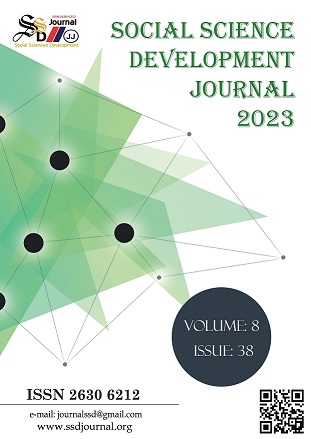EXAMINING THE RELATIONSHIP BETWEEN PARENT-CHILD RELATIONSHIP AND PARENTS' COGNITIVE FLEXIBILITY, EMOTION REGULATION SKILLS
DOI:
https://doi.org/10.31567/ssd.940Keywords:
Parent, cognitive flexibility, emotion regulation, primary education, parent-child relationshipAbstract
This study aims to examine the parent-child relationship of the parents having primary education
level students in the context of parents' cognitive flexibility level and emotion regulation skills. The
participants of the research consist of parents who live in Kartal district of İstanbul and have
students of primary education. The sample consists of 203 student's parents who have these
characteristics. In the study, "personal information form", "parent-child relationship scale",
"cognitive flexibility inventory" and "emotion regulation difficulty scale" were used for parents. In
this study, the relational survey model which is one of the quantitative research types was used. As a
result of the research it was determined that the level of positive parent-child relationship is high,
the level of negative parent-child relationship is low, the level of emotion regulation difficulty of the
parents is low, the level of cognitive flexibility is high. It was also determined that the level of
cognitive flexibility showed significant differences according to the number of children, and parents
with one child had a higher level of cognitive flexibility than parents with more than one child. In
addition, it was determined that the negative parent-child relationship showed significant
differences according to education level, and the level of negative parent-child relationship was
higher in parents who graduated from higher education compared to parents who graduated from
high school. At the same time, a positive relationship was determined between the level of cognitive
flexibility in the parents and the positive parent-child relationship, and a negative relationship
between the negative parent-child relationship was determined. Finally, it was determined that there
is a negative correlation between the level of emotion regulation difficulty and positive parent-child
relationships and a significant positive correlation between negative parent-child relationships.




